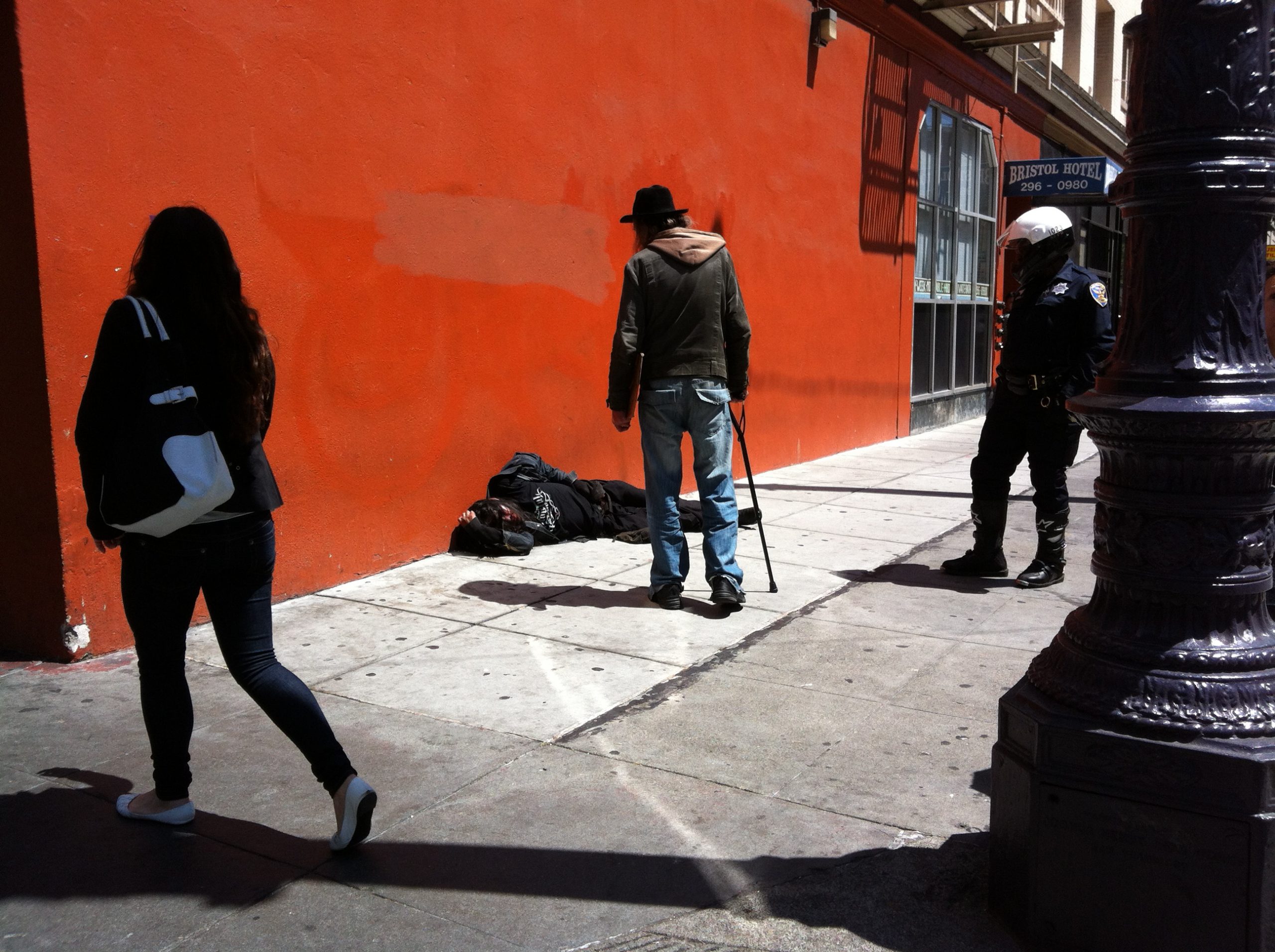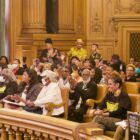San Francisco is an expensive place to find an apartment, sure. But it can also be a costly place to live outside.
Police served homeless people in the city with almost 40,000 citations over a five-year period, according to records compiled by the city agency that provides homeless services.
Data from the San Francisco Human Services Agency show that local law enforcement issued 39,714 citations between 2006 and 2011 for a variety of so-called “quality of life” offenses, including sleeping outside, blocking sidewalks and trespassing. (See full dataset from the Human Services Agency in XSL format.)
In response to an information request from the San Francisco Public Press, the agency provided data on how often homeless people get ticketed for 35 state and municipal codes. More than half of those citations were given in 2008 and 2009, when police wrote out 12,726 and 12,895 tickets respectively.
Of the total number of citations, alcohol-related offenses account for the majority, but sleeping in parks and trespassing are also among the most frequent infractions cited. Possession of an open container consistently led among all other violations with 12,250 citations issued. Overnight sleeping in a park yielded 3,512 write-ups. Running neck and neck for third place are two similar infractions for trespassing: Obstruction of a street or sidewalk at certain times resulted in 2,254, and trespassing, 2,222.
This year, the number of citations could increase thanks to newly enacted ordinances, including one that extends the camping ban enforced in parks to two Castro District plazas.
Paul Boden of the Western Regional Advocacy Project criticized such police practices as reflecting a nationwide pattern of criminalizing homelessness.
“National crime statistics reveal millions were sitting, lying down, hanging out and — perhaps, worst of all — sleeping,” he said.
Other homeless-serving organizations, such as the Neighborhood Justice Clinic, maintain that enforcement of such laws unfairly targets homeless people. Citations that don’t get resolved lead to arrest warrants and incarceration, said Elisa Della-Piana, director of the Berkeley-based Neighborhood Justice Clinic.
A criminal record acts as a barrier to public housing. A client of Della-Piana’s moved to the top of a public housing waitlist, but unfortunately outstanding warrants on his record prevented him from getting housed. The warrants stemmed from sleeping in a park and on a sidewalk while he was homeless.
“Criminal enforcement can act to keep people homeless,” she said.
In April, the U.S. Interagency Council on Homelessness reported a nationwide increase in the passage of laws prohibiting camping, loitering and panhandling since 2006. The federal task force called for more housing and supportive services, as well as problem-solving alternatives to the criminal justice system.
Last year, the National Law Center on Homelessness & Poverty, a Washington, D.C.-based advocacy group, noted that San Francisco imposes time- or place-specific restrictions on 10 of 14 public behaviors.
Listen to reporter T.J. Johnston on KQED News at 88.5 FM Monday at 6 p.m.










